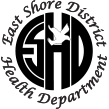Special Needs
Emergency Preparedness and the Special Needs Community
Public health emergencies can pose a real challenge to individuals with disabilities. When emergencies strike, it forces local officials and relief workers to react quickly. But they may not be able to reach everyone right away. It is up to you to prepare yourself or others with special needs until help can arrive.
Three Main Strategies to Be Prepared
1. Make a Plan
- Create a Personal Support Network
- Develop a Communication Plan
- Plan to shelter your pets
- Prepare for different hazards
- Know how to shut off utilities, like water, gas and electricity
- Keep copies of your vital records in a safe deposit location or other safe location.
2. Get Informed:Know Community Plans and Local Resources
- Get to know your community's local emergency plans,
- If you live in a group home or attend a health care facility or program, please ask an employee to explain their emergency plans.
- If you have a child in school, check with the school to learn about their disaster and emergency plans and capabilities.
- Ask about special assistance programs available in the event of an emergency. If you are electric-dependent, register your needs with your local utility company.
3. Get a Kit of Emergency Supplies
- Put together an emergency kit containing any essential foods, medicines and personal support network phone numbers in case you ever need one in a moment's notice.
Learn More:
- Disability Preparedness Resource Center
- Ready America Special Needs Populations Information
- Connecticut Mental Health and Addiction Services Psychological First Aid Information
- Connecticut Department of Developmental Services
- National Association of the Deaf
- American Foundation for the Blind
- U.S. Department of Transportation
*Information obtained from U.S. Homeland Security and American Red Cross
